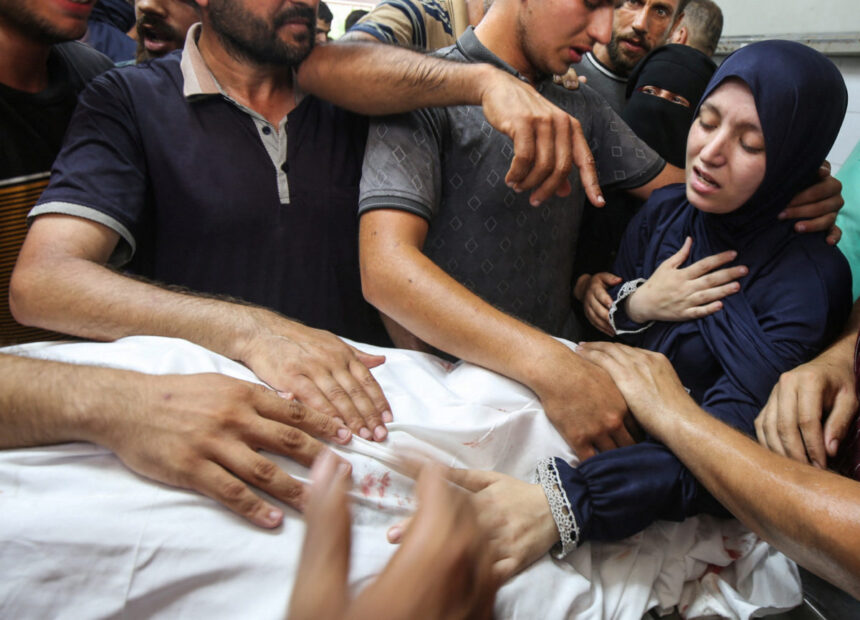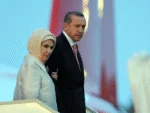Hamas indicated on Wednesday its openness to a ceasefire agreement with Israel, but stopped short of accepting a U.S.-backed proposal announced by President Donald Trump hours earlier. The militant group insisted on its longstanding demand that any deal must lead to a complete end to the war in Gaza.
President Trump stated on Tuesday that Israel had agreed to terms for a 60-day ceasefire in Gaza and urged Hamas to accept the deal before conditions deteriorated. The U.S. leader has been intensifying pressure on both the Israeli government and Hamas to broker a ceasefire, a hostage agreement, and ultimately bring an end to the conflict.
Trump indicated the 60-day period would serve as a phase to work towards ending the war – a condition Israel says it won’t accept until Hamas is defeated. He suggested a deal could materialize as early as next week. However, Hamas’s response, emphasizing its demand for the war’s conclusion, casts doubt on whether the latest offer will lead to an actual pause in fighting.
Hamas’s Stance and Ongoing Negotiations
Hamas official Taher al-Nunu affirmed the militant group was “ready and serious regarding reaching an agreement,” adding that Hamas was “ready to accept any initiative that clearly leads to the complete end to the war.”
A Hamas delegation is expected to meet with Egyptian and Qatari mediators in Cairo on Wednesday to discuss the proposal, according to an Egyptian official who spoke anonymously.
Throughout the nearly 21-month-long conflict, ceasefire talks between Israel and Hamas have repeatedly stalled over the fundamental disagreement on whether a deal should include a definitive end to the war.
Hamas stated in a brief announcement on Wednesday that it had received a proposal from the mediators and is engaging in discussions to “bridge gaps” to return to the negotiating table for a ceasefire agreement. Hamas has consistently maintained its willingness to free the remaining 50 hostages, fewer than half of whom are reportedly alive, in exchange for a complete Israeli withdrawal from Gaza and an end to hostilities.
Israel, conversely, asserts it will only agree to end the war if Hamas surrenders, disarms, and exiles itself—conditions the group refuses.
Details of the Proposal and Trump’s Warning
An Israeli official, speaking anonymously due to not being authorized to discuss details, said the latest proposal calls for a 60-day deal that would include a partial Israeli withdrawal from Gaza and a surge in humanitarian aid to the territory. The mediators and the U.S. would offer assurances about future talks to end the war, but Israel is not committing to that as part of this particular proposal.
The number of hostages to be freed under this agreement was not clear, but previous proposals suggested the release of around 10.
Israel has yet to publicly comment on Trump’s announcement. On Monday, Trump is scheduled to host Israeli Prime Minister Benjamin Netanyahu at the White House, following recent discussions between a senior Netanyahu adviser, Ron Dermer, and top U.S. officials regarding Gaza, Iran, and other matters.
On Tuesday, Trump wrote on social media that Israel had “agreed to the necessary conditions to finalize the 60 Day CEASEFIRE, during which time we will work with all parties to end the War.” He added, “I hope, for the good of the Middle East, that Hamas takes this Deal, because it will not get better — IT WILL ONLY GET WORSE.”
Trump’s warning might be met with skepticism by Hamas. Even before the expiration of the war’s longest ceasefire in March, Trump has repeatedly issued ultimatums to pressure Hamas into longer pauses that would facilitate more hostage releases and increased aid for Gaza’s civilians. Still, Trump views the current moment as a potential turning point in the brutal conflict that has claimed more than 57,000 lives in the Palestinian territory.
Humanitarian Crisis and Casualties in Gaza
Gaza’s Health Ministry reported that the death toll surpassed the 57,000 mark by Wednesday morning, after hospitals received 142 bodies overnight. The ministry does not differentiate between civilians and combatants in its count but states that more than half of the deceased are women and children.
Since dawn on Wednesday, Israeli strikes have killed a total of 40 people across the Gaza Strip, the ministry said. Hospital officials confirmed that four children and seven women were among the dead. The Israeli military, which attributes civilian casualties to Hamas operating from populated areas, is investigating these reports.
The war began on October 7, 2023, when Hamas-led militants attacked southern Israel, killing 1,200 people and taking approximately 250 hostages. The conflict has left the coastal Palestinian territory in ruins, with much of its urban landscape flattened. More than 90% of Gaza’s 2.3 million population has been displaced, often multiple times, and the war has triggered a severe humanitarian crisis, pushing hundreds of thousands towards hunger.
In a tragic development, the director of the Indonesian Hospital, Dr. Marwan Sultan, was killed in an apartment during an Israeli strike west of Gaza City, according to a hospital statement. The Indonesian Hospital is the largest medical facility north of Gaza City and has been a crucial lifeline since the onset of the war. The hospital was surrounded by Israeli troops last month and evacuated alongside the other two primary hospitals in northern Gaza.
The bodies of Sultan, his wife, daughter, and son-in-law arrived at Shifa Hospital, torn into pieces, according to Issam Nabhan, head of the nursing department at the Indonesian Hospital. “Gaza lost a great man and doctor,” Nabhan said. “He never left the hospital one moment since the war began and urged us to stay and provide humanitarian assistance. We don’t know what he did to deserve getting killed.”







